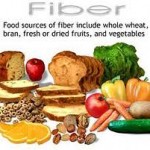 When you have constipation, it is best to seek relief in foods that serve as natural laxatives. Over-the-counter constipation medicines and suppositories can be harsh on the digestive system, and also pose the risk of dependency and addiction. The body can also become accustomed to a medicinal laxative, meaning that it will become less effective over time.
When you have constipation, it is best to seek relief in foods that serve as natural laxatives. Over-the-counter constipation medicines and suppositories can be harsh on the digestive system, and also pose the risk of dependency and addiction. The body can also become accustomed to a medicinal laxative, meaning that it will become less effective over time.
The good news is that there are many foods that can supply a natural laxative to help get your digestive system moving again. There are also several lifestyle changes that you can make that will encourage your body to perform bowel movements. This combination of diet and lifestyle changes should make a noticeable improvement in your symptoms.
Which nutrients act as natural laxatives?
Dietary insoluble fiber is a great natural laxative because it is indigestible, therefore it must be pushed through the digestive system and expelled during a bowel movement. Increasing the insoluble fiber intake in your diet will for sure digestive system to get moving again, and help to move the food through your colon.
Complex carbohydrates can also act as natural laxative because they are more difficult for the digestive system to break down and are absorbed into the body more slowly. On the other hand, highly refined foods and simple sugars are absorbed quickly into the body and provide little benefit to constipation relief. A diet high in simple carbohydrates and refined foods often leads to constipation because the food is absorbed and there is little fiber left to push through the colon.
What foods serve as the best natural laxative?
Perhaps the most famous natural laxative are prunes and prune juice. Prunes are loaded with both soluble and insoluble fiber and also have enzymes which can stimulate the colon.
Psyllium husks, finely ground flakes of psyllium bran, are relatively new to the scene, but also act as a great natural laxative and are very high in natural fiber. Psyllium husk can be ingested in the form of fiber pills, and they also can be spread over foods such as yogurt and cereal. Make sure to combine plenty of water with your psyllium husk intake for optimal performance.
Aloe vera is another ingredient often used in homemade laxative formulas. The leaves of an aloe vera plant can be boiled and the resultant juice is a potent natural laxative cocktail. The taste is very bitter and is tough to get accustomed to, but it is very effective as a laxative. Sugar or honey may be added to the mixture to sweeten it and make it more palatable.
Pears are well known to have a laxative effect on the body. In fact, most fleshy, whole fruits are high in fiber and complex carbohydrates which are more difficult for the digestive system to break down, and therefore encourage bowel movements. Try to incorporate plenty of fresh fruits and vegetables in your diet if you suffer from constipation.
Flax oil and flax seed are also a favorite in dealing with constipation. Flax seeds can be ground in a Miller grinder and then spread across your favorite foods. They also make a great addition to protein shakes or smoothies. Flax seeds are high in omega-3 fatty acids, and also insoluble fiber.
Physical exercise can act as a natural laxative
In addition to making dietary changes, increasing your physical activity level is also likely to help with constipation. It has been proven that physical exercise stimulates the digestive system and encourages bowel movements and, conversely, people who are bedridden often suffer from constipation. It is advised that you increase your physical activity level in order to improve the symptoms of your constipation.


Leave a Reply